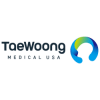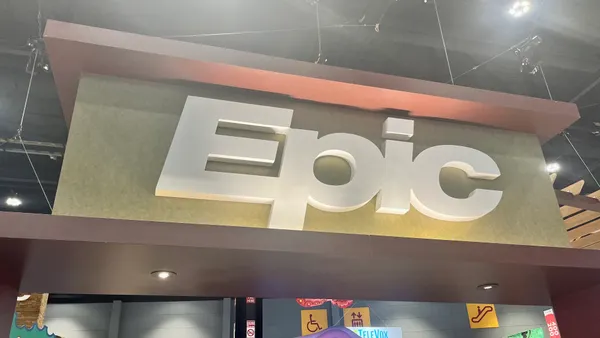Dive Brief:
- Digital health funding continued to break records in the first half of 2018, hitting a new six-month high with $3.4 billion on 193 deals, according to a new Rock Health report.
- The sustained growth exemplifies the digital health sector’s increasing maturation, combined with a healthy venture ecosystem with solid repeat investors. Nearly two-thirds of investors in H1 2018 had at least one other digital health deal under their belt since 2011.
- Four companies scored $100 million-plus deals and represented about a fifth of total funding for the period: noninvasive coronary artery disease detection HeartFlow ($240M), DNA-personalized product store Helix ($200M), health benefits tool Collective Health ($110M) and chronic disease management app Livongo ($104M). The average deal was $17.9 million.
Dive Insight:
With providers focused on improving patient outcomes, lowering costs and advancing population health, digital health funding has been breaking one record after another. During the first quarter, investment hit $1.62 billion across 77 deals, up from $1.41 billion in the same period last year. If funding continues at its current pace, 2018 could reach $6.9 billion across a projected 386 deals, the report says.
On-demand healthcare services was the top-funded category with $617.7 million across 26 deals, followed by disease monitoring with $552.2 million and 27 deals and consumer health information with $491.6 million and 24 deals. Diabetes, mental health and cardiovascular disease were led in funding by clinical indication.
Growing interest in mental health problems combined with cost-effective, scalable tools aimed at helping those affected spurred big-time investment in behavioral health. Funding for startups in this space was the highest ever for a six-month period, with 15 deals worth $273 million — nearly double the H1 2016’s $137 million. More than half of those companies feature virtual or on-demand services, according to the report.
Among the beneficiaries were 10% Happier with $5 million in seed funding, Woebot with $8 million in Series A, Pear Therapeutics ($46M) and Lyra ($45M) in Series B, and Akili ($55M) and Quartet ($40M) in Series C rounds.
Overall, the share of seed stage deals dropped from 23% a year ago to 21% this year, while the number of B stage deals grew.
“More companies are pursuing validation at an earlier stage and investors have elevated their expectations, creating a competitive environment based not on hype, but on proven outcomes,” the report states.
For example, type 2 diabetes treatment Virta Health, which released 12-month clinical trial results, drew $45 million in a Series B funding round that closed in April. The report also points to CDC recognition of diabetes prevention platform Omada Health, with 10 peer-reviewed studies. The San Francisco company has raised about $127 million in six funding rounds.
Also boosting confidence in the space are FDA efforts to expedite reviews via its software precertification program. Last month, the agency released an updated version of its Pre-Cert working model with new details on who can use the program and how the process differs from traditional premarket reviews.
Consumer demand for digital health tools and services is also increasing and transforming the way patients interact with their providers. In a recent Accenture survey, one in five consumers said they have previously used AI-enabled healthcare services and most said they anticipate using them in the future.
In terms of technology, telemedicine was a big winner, landing 21% of total funding with 32 deals valued at $714.6 million, Michelle Huang, research fellow and one of the authors of the report, told Healthcare Dive. Artificial intelligence, machine learning and deep learning was next with $657 million across 43 deals, followed by digital medical devices with $368.2 million on 17 deals.
Despite bullish investment in digital health startups, exits have been slow. Rock Health attributes the “IPO drought” to two factors: well-funded companies are choosing to stay private longer and large companies are acquiring startups before they go public.
“With a plethora of potential acquirers (and an abundance of private capital), digital health startups may be offered a lucrative acquisition before they have reached predictable revenue, scale and a growth trajectory to function as independent, public companies,” the report says.
Notable deals in the half included Roche’s $1.9 billion acquisition of Flatiron Health, Teladoc’s $352 million purchase of Advance Medical and Allscripts’ $100 million grab for Practice Fusion. And just last week, Amazon announced plans to acquire online pharmacy PillPack.











